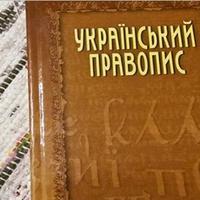Буква ї
Ihr Brief
Her letter
Letra i
Sa lettre
手紙私
Letra i
Буква "й
Brev i
這封信我
Букву ї, що позначає звуки й + і, пишемо:
Der Buchstabe yi, der die Laute und + und bezeichnet, schreiben wir:
The letter yi, denoting the sounds and + and, we write:
La lettre yi, désignant les sons et + et, on écrit :
音 и + и を表す文字 и を書きます。
1.
1.
1.
На початку слова та після букви, що позначає голосний: герої́зм, ї́жа,
Am Anfang des Wortes und nach dem Buchstaben, der den Vokal bezeichnet: Heldentum, Essen,
At the beginning of the word and after the letter denoting the vowel: heroism, food,
Au début du mot et après la lettre désignant la voyelle : héroïsme, nourriture,
単語の先頭と母音を表す文字の後に: 英雄的行為、食べ物、
їжа́к, їзде́ць, ї́здити, ї́сти, їх, ї́хати, краї́на, мої́, наї́вний, твої́, руї́на.
hedgehog, rider, ride, eat, them, ride, country, mine, naive, yours, ruin.
hérisson, cavalier, chevaucher, manger, eux, chevaucher, pays, mien, naïf, vôtre, ruine.
ハリネズミ、ライダー、乗る、食べる、彼らの、乗る、国、私の、素朴な、あなたの、破滅.
2.
2.
Після м'якого знака: Ана́ньїн, Віньї́.
After the soft sign: Anan'in, Vin'i.
Après le signe doux : Anan'in, Vin'i.
3.
Після апострофа: в'їзд, з'їзд, об'ї́хати, під'ї́зд, Заха́р'їн.
Nach dem Apostroph: Eingang, Kongress, herumgehen, Eingang, Zacharias.
After an apostrophe: entry, exit, bypass, approach, Zakhar'in.
Après l'apostrophe : entrée, congrès, faire le tour, entrée, Zacharie.
4.
В іншомовних словах після букви, що позначає голосний: архаї́чний,
In Fremdwörtern nach dem Buchstaben, der den Vokal bezeichnet: archaisch,
In foreign words after the letter denoting the vowel: archaic,
егої́зм, еліпсо́їд, моза́їка, проза́їк, целуло́їд.
selfishness, ellipsoid, mosaic, prose writer, celluloid.
Примітка.
Notiz.
Note.
Ї не пишемо після префікса або першої частини складного слова, якщо
Es wird nicht nach dem Präfix oder dem ersten Teil eines zusammengesetzten Wortes geschrieben, wenn
It is not written after the prefix or the first part of a compound word, if
вони закінчуються буквою, що позначає голосний, а наступний склад або друга частина
Sie enden mit einem Buchstaben, der einen Vokal bezeichnet, und der nächsten Silbe oder dem zweiten Teil
they end with a letter denoting a vowel, and the next syllable or second part
складного слова починаються з і: доістори́чний, заінтригува́ти, переіна́кшити,
zusammengesetzte Wörter beginnen mit und: prähistorisch, Intrige, verzerren,
compound words begin with and: prehistoric, intrigue, distort,
поінформува́ти; новоірла́ндський, староінді́йський.
to inform; New Irish, Old Indian.

